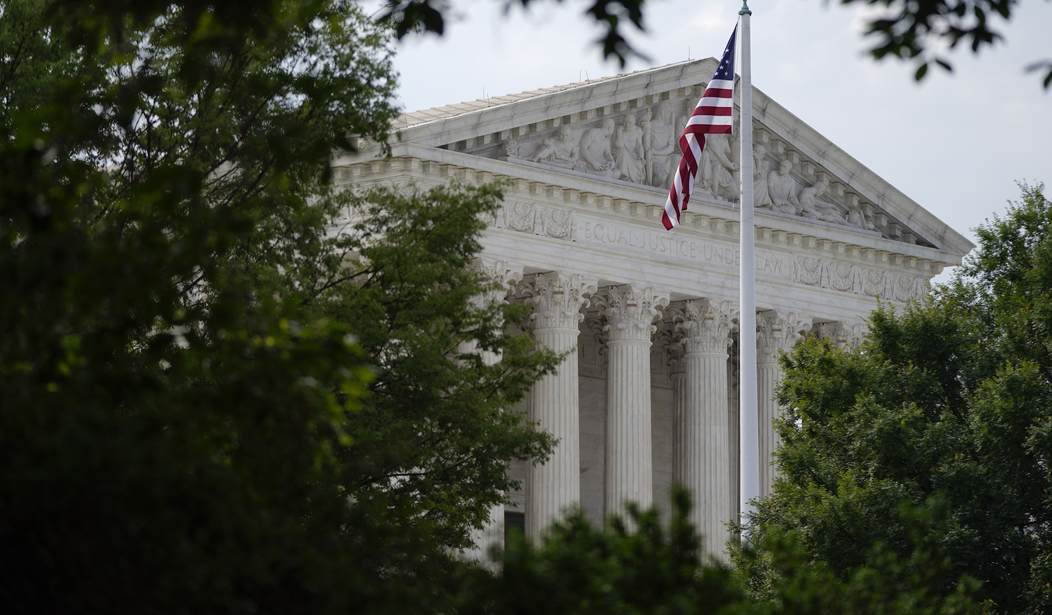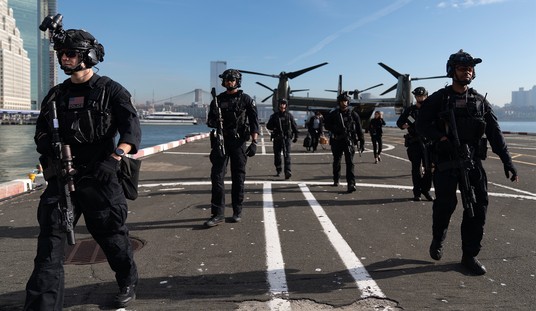There’s a popular meme that only two defining forces have offered to die for you - Jesus Christ for your soul and the American soldier for your freedom. There is no man who can ever compare with Christ but there is a kernel of truth to this meme.
Shortly before his crucifixion, Jesus told his disciples, “This is my commandment, that you love one another as I have loved you. Greater love has no one more than this, that someone lay down his life for his friends.” This is what military volunteers are prepared to do.
Upon their enlistment, people essentially sign a blank check allowing the government to use them for any purpose, up to and including being killed. They take this extraordinary risk for various reasons and many volunteer out of patriotism. Philosopher and Christian apologist G.K. Chesterton wrote, “The true soldier fights not because he hates what is in front of him, but because he loves what is behind him.” This is true but it is incomplete.
Love of country certainly motivates many to join the military, but there are other reasons. My primary motivation to enlist in the Navy was to get an education. I always considered myself patriotic but having dropped-out of college and needing to learn a trade, I joined millions of other teenagers who volunteered for the service.
I am truly blessed that none of my military buddies were killed, and that I saw only a few remains of men who were; that’s something nobody needs. But when it comes to the actual fighting Chesterton speaks of, a soldier does it less for those behind him and more for the man beside him.
Recommended
The military does not achieve this feat by channeling the words of Jesus about laying down one’s life. While there are some natural soldiers who possess this warrior ethos, most have it programmed into them through training and fostering unit loyalty, which is essential to survival and success. It is instilled in recruits starting with their arrival at boot camp; their individuality is stripped away as the process of molding them into a cohesive fighting unit begins.
Through a series of hardships that begin in basic training, loyalty starts to form among the company. Few things bond people together more than shared hardship, and military life provides plenty of that, to greater and lesser degrees. These hardships, coupled with a diet of small successes along the way, are what compel soldiers to risk death.
“Men will be more willing to risk their lives if they are confident that the others in their unit will take equally great risks to save them if they get in trouble,” writes military historian and author Gwynne Dyer in his outstanding book War. “The recruits’ total identification with the other members of the unit is the most important lesson of all.” This principle of warfighting is ancient. Moses wrote in Deuteronomy, “Is there any man who is fearful and fainthearted? Let him go back to his house, lest he make the heart of his fellows melt like his own.”
If learning to die for a buddy is the most important lesson, the second most important is learning to kill; that’s more difficult. Killing is almost always morally unacceptable and it requires great effort to convince someone to do it willingly. Dyer references a study during World War II showing that about 15% of infantrymen actually fired their weapons in battle. This prompted the Army to revise its training doctrine and by the Korean War, the rate of soldiers shooting back rose to 50%, with even higher rates of fire in acute combat crises.
Technology has made war vastly different than it was 80 years ago. Piloting a drone over a combat zone from a console in Grand Forks, North Dakota doesn’t generate the fear of being under fire in, say, Fallujah. But it doesn’t negate the truth that war ultimately boils down to killing and dying.
Soldiers do a job that 99% of Americans don’t want and I fault no one for not choosing military service. But the killing part of war does not make soldiers wicked. Moses told the Israelites, “Today you are drawing near for battle against your enemies: let not your heart faint. Do not fear or panic or be in dread of them, for the Lord your God is he who goes with you to fight for you against your enemies.”
However, it is the dying part of war that ennobles the military and those in it. Tens of millions of Americans have worn the uniform since 1776 and 1.3 million of them gave what Abraham Lincoln called, “the last full measure of devotion.”
For these men and women, I thank God on Memorial Day. Through their courage, they demonstrated what Jesus Christ called the greatest love of all by laying down their lives.

























Join the conversation as a VIP Member